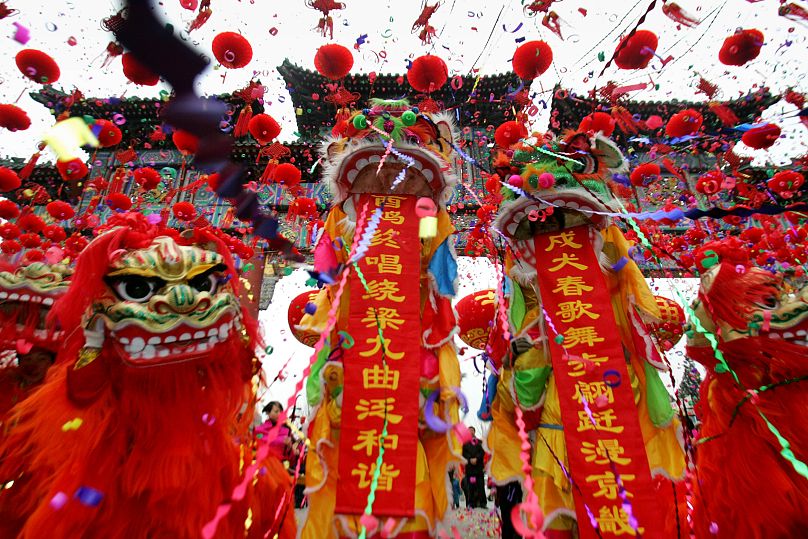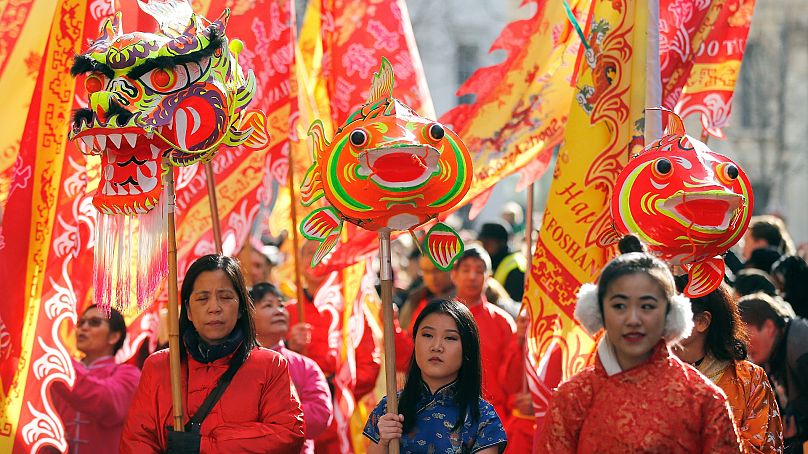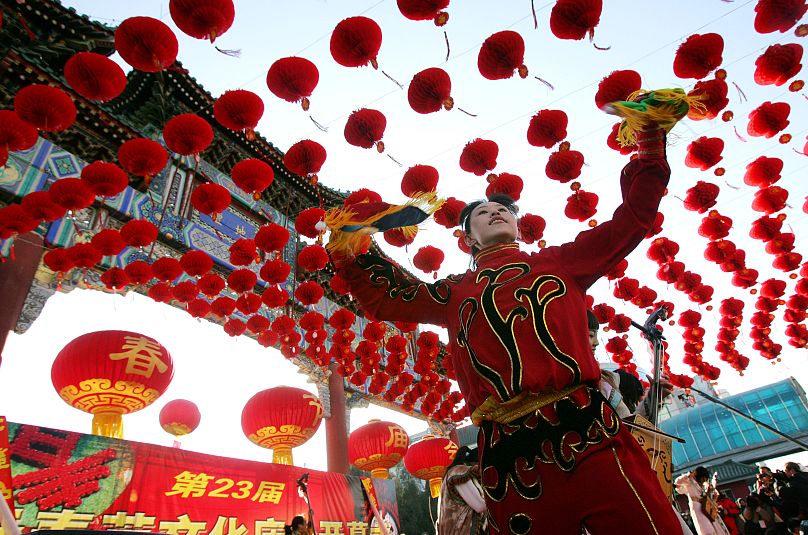From parades in town centres to passing on red packets, here's how the world celebrates the Spring Festival.
春节快乐!(Chūnjié Kuài Lè!) Happy Chinese New Year!
Celebrated around the world, the festival recognises the second new moon after the winter solstice and the beginning of spring, hence its literal name: the Spring Festival or Lunar New Year.
A cornerstone of Chinese culture, the Spring Festival is celebrated by around 2 billion people. Although it is primarily associated with the majority Han ethnicity in China, it is also celebrated by 29 of China’s 55 ethnic minority groups as well as many other East Asian nations, with public holidays in China, Hong Kong, Macau, Taiwan, Singapore, Malaysia, North Korea, South Korea, the Philippines, Indonesia, Vietnam and Brunei.
Celebrated on the day after the second full moon, this year’s Spring Festival starts on 10 February and festivities will last until the Lantern Festival (more on that later) on 24 February.
Around 2,230,000 people who are Chinese immigrants or of Chinese descent live in Europe today. This number doesn’t take into account the many other Asian-origin demographics in Europe who will celebrate the holiday.
What is Chinese New Year?
Many of the traditional festivals on the Chinese calendar stem from celebrations of significant agricultural dates. While the Mid-Autumn Festival, or Moon Festival, celebrated the end of the harvest season on 29 September 2023, the Spring Festival signifies the start of farming season.
There’s a deep historical tie between rituals and agriculture in Chinese culture, which can be linked to the naturalistic approach to spirituality. The term 天 (Tiān) is a good example of that, with definitions that range from “day” through “season” and all the way to “God” and “Heaven”. While that might seem a pretty broad range to a Westerner, it’s consistent with a philosophy that ties the supernatural to the natural world.
Recordings of Spring Festival celebrations date back to as early as the Warring States Period from 475 BC to the unification of China under Qin Shi Huang in 221 BC.
As the Spring Festival is based around the Chinese lunar calendar, the dates it is celebrated change annually according to the Western Gregorian calendar. It usually falls between 21 January and 20 February, with this year’s celebration on the 10th of February.
From the first day of the lunar calendar, the festival then lasts until the fifteenth day, also known as the Lantern Festival.
Year of the Dragon?
You may have already heard that his year will be the year of the dragon according to the Chinese Zodiac calendar. Each Chinese year is signified by one of 12 animals in rotation based on the orbital position of the Earth around the Sun, unlike the Western Zodiac which is based on star constellations.
Chinese culture also ascribes personality types to people based on their zodiac animal. Dragon babies are considered “charismatic, intelligent, confident, powerful and they are naturally lucky and gifted” according to the University of Washington. This belief is so pervasive, there have been recorded issues with hospitals under capacity in dragon years, as Chinese parents try to have a child in the 12 month period.
You might want to know though that people born in the year of the dragon are not compatible with people born in the year of the dog. It also means it’s not recommended to get yourself a new puppy this year.
There’s also the element cycle at play. According to the Chinese calendar, a year can also be defined as either metal, wood, water, fire, or earth. When adding the five elements to the 12 animals, each specific combination only comes about every 60 years.
As it is a wood year, that makes it officially the Year of the Wood Dragon. A wood year is associated with strength and flexibility with personal qualities of warmth, co-operation, generosity and idealism.
How is Chinese New Year celebrated?
There are many traditions associated with the Spring Festival. For many Europeans, the first thing that will spring (excuse the pun) to mind will be the parades held across the many Chinatowns that populate cities worldwide.
Parades, like the ones in London and Paris, will bring together many lucky symbols of the new year, such as fireworks, firecrackers and lion dance troupes. While these will be great fun, that’s not actually how many Chinese people will actually celebrate the Spring Festival. Instead, the festival is usually considered a family affair, with huge numbers of people travelling around the world to be with their close ones.
Probably the most important traditions associated with the Spring Festival are the food-based ones. Big family feasts are a major part of the Spring Festival celebrations. Important foods on the day include oranges and fish, as both have synonyms for prosperity in Cantonese and Mandarin, respectively.
Another important tradition is the exchange of Hong Bao, or red envelopes. Older married family members pass on red envelopes filled with cash, while employees often use the festival as an opportunity to give out bonuses. A word to the wise though, don’t give an amount with a 4 in it, as the number’s character 四 has an alarmingly unlucky association with the one for death 死.
Finally, if you want to wish someone a happy new year in Chinese, it’s simple. In Mandarin, you can use the phrase “春节快乐” (Chūn Jié Kuài Lè), which means “Happy Spring Festival”, and in Cantonese, it’s “恭喜发财” (Gong hei fat choi), which means “Congratulations and be prosperous”.






